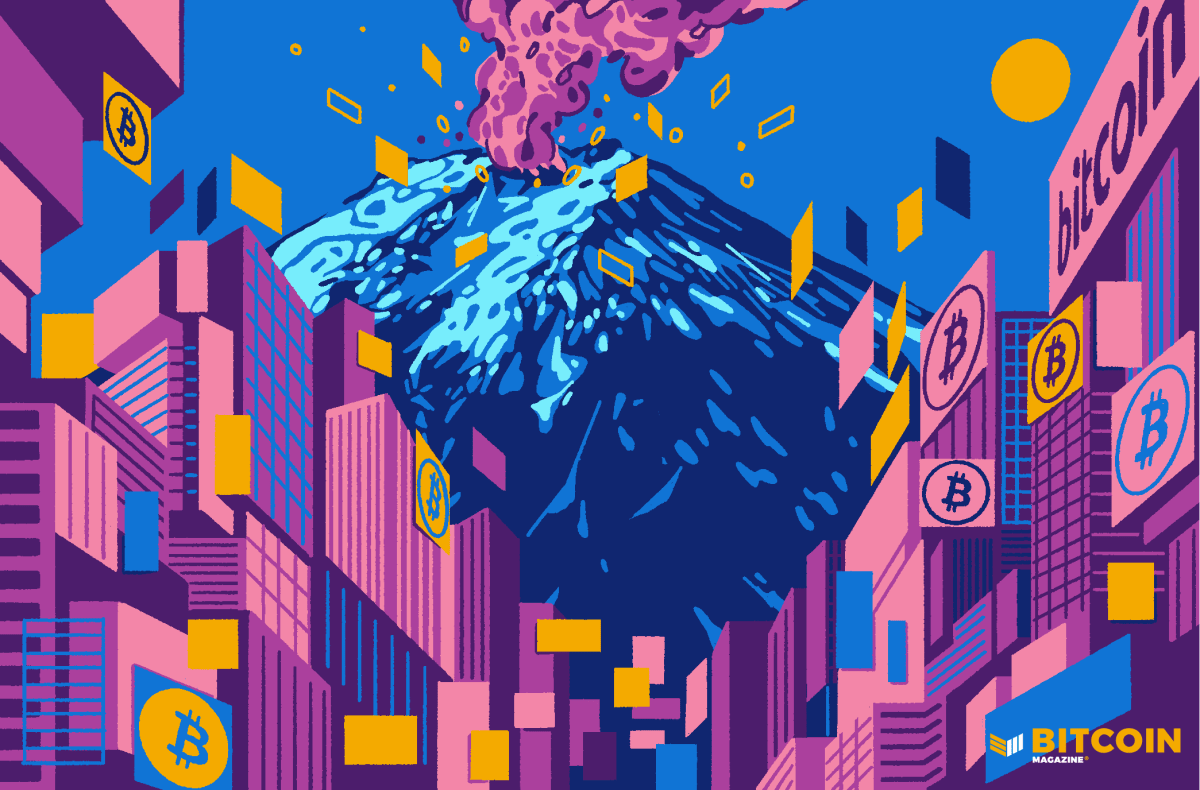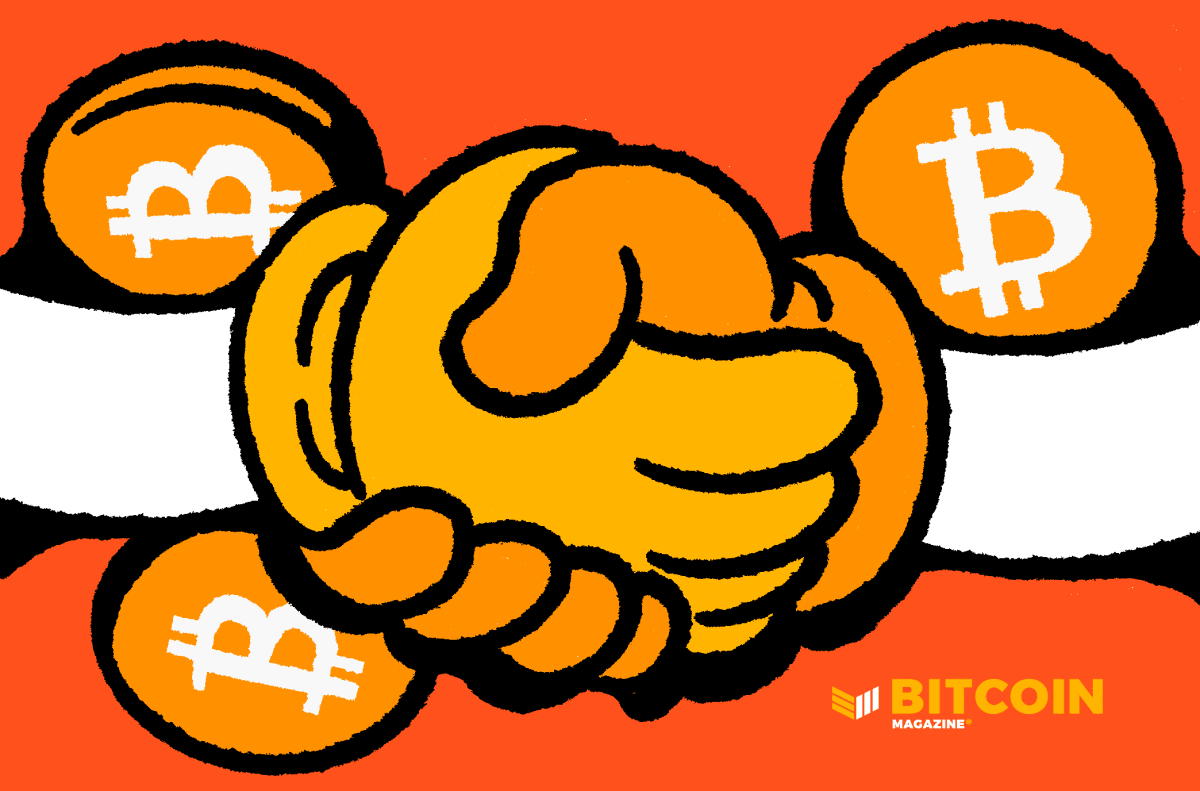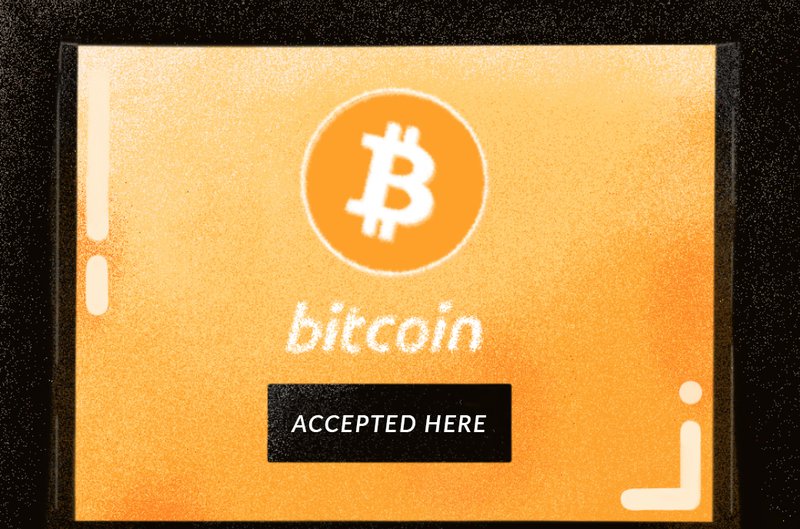How Bitcoin And Artificial Intelligence Will Free Your Time
The use of technology will give humans more time to practice mindfulness and do the things they want to do, without having to worry about making ends meet.
This is an opinion editorial by Sydney Bright, a professional science writer on the topic of health benefits from mindfulness-based practices.
Where is technology taking us? Will robots surpass our intelligence and replace us altogether? Will we combine with machines in some symbiotic merge that creates a new super being? Or are machines merely tools that will allow our more fundamental nature to thrive? In this article, I will argue that technology is how human beings will be able to return to a more natural life that is devoid of the harsh realities that existed 10,000 years ago.
Those who are aware of my work on the science of meditation ask me why there is also a discussion of economics and Bitcoin on my blog. First, I feel that any curious mind should be well-rounded: Multiple fields of study are worth pursuing, as they all compile a more complete understanding of reality. At first, I felt that they were simply separate interests of mine. However, now I have come to realize that they are partly connected and suggest an exciting forecast for humanity’s future.
As I become more involved in Bitcoin and learn more about the history of the internet and the invention of computers, I have grown an appreciation and curiosity toward computers in general. With such an interest and education comes a greater understanding of computers and where they may take us. Of course, this is a popular topic, especially when people speak of artificial intelligence (AI) and robots. Many worry that computers will soon become more intelligent than us, which would be a problem. Elon Musk has stated that a significant purpose of Neuralink is to allow humans to acquire the same processing power as a computer so that they do not overcome us. In truth, I think this is a potentially misguided point of view. I think it is possibly the other way around: What is overcoming us are our overly thoughtful minds. Computers should do some of the thinking for us so that we may return to a healthier existence characterized by mindfulness, the scientific benefits of which are explained throughout this article.
To explain what computers have to do with this, let us first examine some history. The history of computers seems to begin with Charles Babbage and Ada Lovelace. Charles Babbage was born in 1791 and is credited as the “father of the computer.” He was a mathematician who invented the machine known as the difference engine. When cranked, this machine would solve a specific mathematical problem. It could be seen as a very complicated and powerful calculator, except that it was programmable because the machine would output a new value once it was fed inputs. However, the machine was never finished because of funding issues. Ada Lovelace, the daughter of Lord Byron and an acquaintance of Babbage, wrote an algorithm for the machine that would solve Bernoulli numbers. She is therefore referred to as the world’s first computer programmer. She also contributed significantly to the field, after noticing that a machine like this could solve math problems and other forms of problems. This is perhaps the most crucial idea that moved the field forward. Maybe we should refer to her as the mother of computer science.
Fast-forward to WWII. Alan Turing, a mathematician, is hired by English intelligence to crack the Enigma code of the German opposition. This cryptographic cipher would be needed to decode German communications, but the code changed daily. Given the cipher’s complexity, it would be virtually impossible to solve with human resources within 24 hours. So, Turing decided to generate a machine that would do it instead. This story is wonderfully told in the film “The Imitation Game.” Imagine that before this time, each machine performed a singular purpose: cars drove, plows plowed, calculators calculated, etc. Mr. Turing, likely influenced by his mathematician predecessors such as Lovelace, came up with the design of a machine that could be programmed to “think.” More specifically, a machine that could “carry out any operation which could be done by a human computer.” Turing envisioned a universal machine that could be programmed to do anything by “thinking.” We know now that he successfully invented a version of such a machine during the war, which saved many lives. He created the first fully functional computer. Of course, his machine couldn’t actually think through anything. Nonetheless, it set in motion something grand.
Ever since Turing, human beings have been working on creating more advanced computers. Unlike Turing’s machine, the modern computer uses electrical circuit boards rather than mechanical parts. Additionally, ours have been programmed to perform more actions than Turing’s machine ever could. Looking back, humans have been continuously developing one big universal machine. Of course, many different computers have different shapes, sizes, qualities, etc. However, most are connected by the internet and perform actions that many of us take for granted. They uphold the very fabric of our modern society. Even more interesting to think about is that people developed the code and programming required to generate the internet in a globally distributed way. Programmers and researchers across the globe began developing protocols such as Transmission Control Protocol and Internet Protocol (TCP/IP) which governs our modern internet. Imagine that, aside from academics and select companies, many computer enthusiasts sat in their room, tapping fingers against a keyboard, communicating with one another. They generated the backbone for our global internet without any financial incentive, doing so without institutions or customers paying them. In the end, individuals continue to come together to help build the internet’s infrastructure, all for the greater good. It seems humans are naturally inclined to make this worldwide Turing machine, but why?
I have heard the idea that human beings are the caterpillar that will create our butterfly replacement: robotic life. However, I think this prediction is misplaced. It conflates logical intellectualism with life, and misrepresents what the worldwide Turing machine means for our human progression. What are we building? The internet is a global communication network that allows for information transfer. We created a worldwide Turing machine that would record, remember, filter and process information for us. Bitcoin was the next great decentralized innovation built on this worldwide Turing machine. What does it do? It records, maintains, manages and keeps our monetary infrastructure safe. Soon, we will have incredible robots and AI. They will farm for us, build for us, clean for us, etc. We are making a worldwide Turing machine to do all our thinking-oriented tasks.
To what end? The philosopher and mathematician Alfred North Whitehead once said, “It is a profoundly erroneous truism that we should cultivate the habit of thinking of what we are doing. The precise opposite is the case. Civilization advances by extending the number of important operations which we can perform without thinking about them.”
This is precisely the point. We are building a machine that will do our tasks so that we do not have to think about them anymore. In our modern, Western, analytically oriented culture, we believe that thinking is the highest form of being. We become afraid of the notion that a machine will replace our need to think because we believe it is what makes us unique. However, it would do us wonders to let go of this hubris. Knowledge is not the final frontier of understanding reality; wisdom is.
This idea is well elucidated by Daoist philosopher Zhuang Zi (庄子) in this parable:
“Yan Hui said, ‘I am making progress.’ Zhongni replied, ‘What do you mean?’ ‘I have ceased to think of benevolence and righteousness,’ was the reply. ‘Very well, but that is not enough.’ Another day, Hui again saw Zhongni, and said, ‘I am making progress.’ ‘What do you mean?’ ‘I have lost all thought of ceremonies and music.’ ‘Very well, but that is not enough.’ A third day, Hui again saw (the Master), and said, ‘I am making progress.’ ‘What do you mean?’ ‘I sit and forget everything.’ Zhongni changed countenance, and said, ‘What do you mean by saying that you sit and forget (everything)?’ Yan Hui replied, ‘My connection with the body and its parts is dissolved; my perceptive organs are discarded. Thus leaving my material form, and bidding farewell to my knowledge, I am become one with the Great Pervader. This I call sitting and forgetting all things.’ Zhongni said, ‘One (with that Pervader), you are free from all likings; so transformed, you are become impermanent. You have, indeed, become superior to me! I must ask leave to follow in your steps.”
The message I glean from this passage is that it is the absence of analytical knowledge — rather than the presence of it — that allows one to arrive at a state of enlightenment. In other words, rather than the typical idea that knowledge and thinking are what we need to arrive at the truth of the world, wisdom achieved through mindfulness brings one to that higher state of understanding. This is what meditation contributes to. It is the practice of acquiring a calmer mind that is more present to gain greater wisdom of ourselves and our universe. This is what makes human beings extraordinary. It is what makes beings of biology special. Intellect is the talent of the computer, while wisdom is the talent of life.
Machines can take over the laborious nature of our lives, so we may find time to simply be. An understanding of this consequence can be achieved from the economics of a hyperbitcoinized world. One of the arguments in favor of Bitcoin is that it can replace our current monetary system based on fiat money with a system replaced by sound money. A fiat currency system is defined by inflation, whereas a sound money system is characterized by money that has its purchasing power determined by markets, independent of governments and political parties. This is crucial to consider. In an inflationary world, the cost of living continuously increases, which means that every paycheck is worth less than the previous one. This incentivizes people to spend money rather than saving it. Policymakers tend to favor this system because this spending stimulates the economy — which helps the rich get richer as the poor get poorer. Instead, it is a deflationary environment that would benefit us most. In a deflationary economy, the cost of living goes down every day. The next time you get a paycheck, even if the paycheck has the same number on it, it grants you a greater purchasing power. Savings become more valuable daily, even if there is no interest, therefore, someone can retire sooner. Imagine if 100 years ago, it took 60 years to save and retire. For the next generation, it took 40 years, and so on. Eventually, in a deflationary system, it took only one day to have enough wealth to retire. Eventually, people would hardly have to work to save enough for them to live the rest of their lives with abundant free time. Of course, this is not only because of the monetary system; it would be largely due to the advancements in technology that make our lives easier and more manageable. If Bitcoin didn’t exist, this could still happen.
The worldwide Turing machine will grow and replace many of our jobs. However, without Bitcoin, the monetary system would funnel all the wealth to the rich and powerful and the poor would not see the full benefits of the advancing economy. We already see much of this today: Rich people live incredibly luxurious lives without having to work excessive hours, while middle- and lower-class people work hard every day with only tiny bits of wealth to show for it. With Bitcoin, everyone can benefit from advancing technology. It does the “thinking” for us in keeping track of global transactions, accounting, etc., so we do not have to rely upon corrupt central banks to do it. This way, all ships rise with the tide. Again, the worldwide Turing machine will think for us so we can live tranquil and relaxing lives. Bitcoin is simply the newest advancement in this fantastic machine.
This is not an entirely novel idea, of course. Many people have foreseen the rise of computers and robots replacing us in the workforce and giving us more time to relax. Given the invention of Bitcoin, we can be more assured that this wealth will be distributed fairly across the globe. The question then becomes: What will we do in our free time? With this free time, we will be given a choice. I argue that we must consider the benefits of mindfulness and the dangers of an overly thoughtful mind. In this overabundant future, we can choose to just be.
Throughout this article, I will discuss the scientific research that illustrates the great and many health benefits that mindfulness meditation provides — both mental and physical. I think this is profound in demonstrating how health can be improved holistically and naturally, and illustrates a more fundamentally true aspect of the human condition that we do not often consider today: We evolved to be mindful.
Our modern society highly values intellect and thinking. People are sent to school to learn how to think so they can either solve problems at work or at universities. Think, think, think, think. The issue is that thinking takes us away from being mindful and can contribute to poor health if not kept under control. Thinking can be helpful in problem-solving and engineering, helping us develop our modern comforts. However, thinking also invites a mind burdened with repetitive, nonconstructive thoughts that lead to all sorts of poor mental health conditions. The benefits of mindfulness meditation cannot be stressed enough. Mindfulness involves the reorientation of the mind toward the present experience. A state of being absent of a ruminating mind and can be characterized as a state of experiencing life as it currently unfolds. It is a practice that removes the repetitive ruminations that keep us trapped within our heads. I also would argue that intellect is not, in fact, the most helpful method in understanding higher truths of reality, as illustrated by Zhuang Zi above. One who meditates will learn to experience and understand the world for what it is, rather than simply theorizing. Yet we are told that thinking will bring us to the truth, and not that thinking is for fools. The answer is found within a balance of the two. Human beings have thought long and hard about how to progress our economies forward and create this worldwide Turing machine. Thought has undoubtedly benefited us.
Nonetheless, it has come at the cost of our health. My argument is not that this has been wrong. I’m suggesting that this was a necessary sacrifice, so that future generations will not have to work and will be given a space to practice mindfulness. The amount of work required to live will be so minimal in a world where all thinking-related tasks are handled by the worldwide Turing machine. Future generations will have an incredible amount of free time to focus on health, well-being and happiness. Everyone will find these things in their own way, but it seems evident that this will inevitably involve mindfulness practices that keep our mind and bodies healthy. This free time and prosperity will give them the opportunities that we do not have for maximizing their health. This way, our future generations can enjoy the fruits of nature, which would likely lead to a healthier society and planet.
I find it helpful to think of life as full of balance. Often, systems oscillate and act as a pendulum, swinging back and forth. Humans were once hunters and gatherers, living a mindful experience. Then, we began to farm which radically increased the hours of the day we worked and dramatically reduced the diversity and health of our diets at the same time. From a certain point of view, it was a weird path to take. We worked longer hours in the day for less quality nourishment. The pendulum is swinging backward and the evidence is in the technology we began to build at the onset of our agriculture revolution. We are creating these elaborately efficient economies alongside a global computer that can do the labor for us so that we may return to a more natural and mindful way of being. However, in contrast to 10,000 years ago, we will live in great abundance and wealth rather than struggling for necessities — a stunning conclusion to a long history of strife.
Of course, this narrative is not without its cautionary side. Many reading this article may agree that we are moving toward an automated world, where humans are no longer forced to work to survive, but some may see that as dangerous. Some may view this world as dystopian, full of lazy individuals who have no purpose and live unhealthy lives, being absorbed in their virtual worlds and removed from reality. This is also an aspect of the balance, and it is a possibility. The worldwide Turing machine can think for us, but that doesn’t mean it should do everything for us. It is, and always will be, a double-edged sword. Technology can be beneficial, which means it can also be destructive. A good example is social media: it is incredibly positive because it brought the world together through greater communication and cultural exchange. Yet it also began to steal away our attention, poisoning our minds with habits that take us away from being mindful of our present environment. There are things that we should not use technology for and there are temptations that it brings that we should learn to avoid. In general, we should not use technology in ways that prevent us from being mindful and present in our natural environment.
The research explored in this article, including the benefits of meditation and being out in nature, show that there are aspects to our mental and physical health that we take for granted in this thought-driven society. Our bodies were designed to prosper outside. They do not thrive inside, and especially not inside a virtual world like the metaverse. Now, people wish to move out of a concrete jungle into a virtual jungle without fully appreciating our biological needs. Even though our minds may love the idea of living in a virtual world, our bodies will not. This behavior is promoted by our modern culture that puts the pleasures and activity of the mind first and the discipline of maintaining a mindful state of being last. Let computers think for us, so we may pursue a life of simply being. Let us not allow computers to dominate our minds.
It is an incredible time in human history. Thanks to technological advancements, it is becoming clear how prosperous human life could become. However, it will not be handed to us on a silver platter. Technology can grant us lives beyond our wildest imaginations. At the same time, the dualistic nature of technology also means without a cultural shift in the way we view life, it could be a tool for destruction. Ancient cultures understood the importance of mindfulness practices. There was an inherent recognition of our connection with Earth and nature, due to the conditions of our lives at the time. This brought benefits toward the mind, body and spiritual understanding of our place within the cosmos. It is evident that wisdom achieved through mindfulness is slowly being lost to time. This global computer, the universal thinking machine invented by Turing, has the capability of providing a life of great luxury where we may live in a state of being more akin to our biological evolution. It also has the capability of distracting us, pulling us away from nature and ruining our health in the process. We should be cautious of integrating computers with our brains or thinking we can make a virtual reality world that will be a suitable replacement for our natural world. The choice of whether technology will bring us closer to health and prosperity is ours to make. It will shape into whatever form we guide it toward. Our guidance is determined by our own ability to either choose a life of mindfulness or choose a life of indulgence as we build.
This is a guest post by Sydney Bright. Opinions expressed are entirely their own and do not necessarily reflect those of BTC Inc or Bitcoin Magazine.









